Lock Blog
A resource for consumers, locksmiths, and security professionals
A resource for consumers, locksmiths, and security professionals
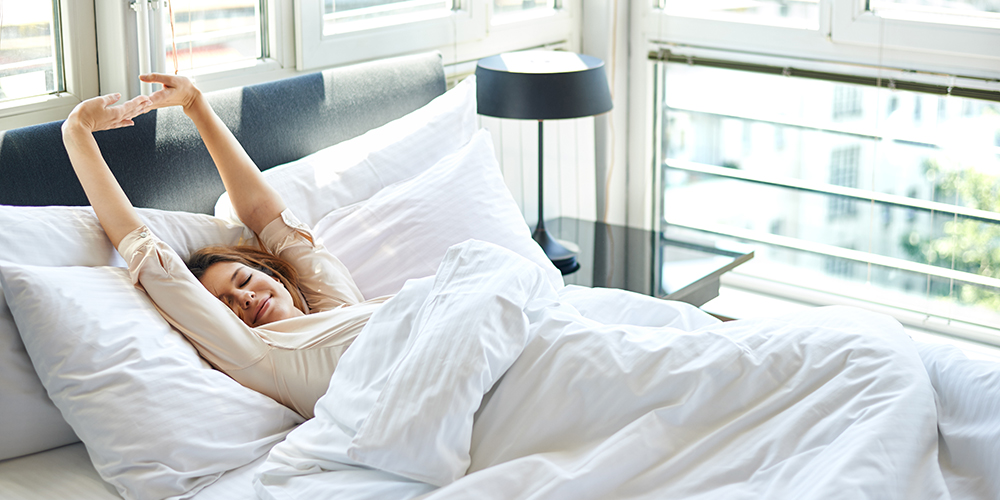
Living alone is many things. It is liberating, sometimes it is lonely, every once in awhile it is scary, but at the end of the day, you are alone. Being by yourself is most certainly a factor in security. But have no fear, because the Lock Blog is here. Today we will be talking about some of the most important safety tips for people living alone. With these protections, you can be a little more at ease when you hear something go bump in the night. Most people are terrified of having their home invaded, but sometimes this fear blinds us to the less exciting threats. Things like personal injury or health related immobilization while in the home are large threats to people living by themselves. If you fall in the shower or have a stroke, help needs to be on the horizon. We will be talking about security that buys you the time you need to fend off criminals, and protections that limit the time you are spending without assistance.
The number of people living alone has been on the rise since the mid-1900’s. This can be attributed to a multitude of things, everything from the cultural shift of putting infants in cribs to the rise of social media. To get a better idea of just why that is I would recommend the book Going Solo by Eric Klinenberg. Just to give a rough picture, in 1920 the percentage of people living alone in the United States was 5%. In 2013, that number rose to 27%. 21% of these people living alone are in the age range of 55-64. These stats alarmed the media and caused quite a stir, resulting in the wide-scale coverage of alarming single living incidents. Specifically, the Chicago heat wave. In Chicago during the summer of 1995, approximately 750 people died. The root causes were a heat wave and a demographic of isolated individuals. Four years later in 1999, the city dramatically reduced these deaths when facing a similar situation by implementing outreach programs to the at-risk group. I have a similar hope with the information provided in this article
If you would like more information about the Chicago heatwave, Eric Klinenberg also wrote a book about this called Heat Wave. I continue to mention this American Sociologist because he has some of the most helpful and non-judgmental views on this growing trend. Independence is made possible by our interdependence. The only way to live alone is to rely on others. In order to thrive on our own, we need to build or be part of a community. In this day and age, that community does not need to be at your local bar. Communities can span the entire globe, and unite countless people with similar hopes, dreams, and desires. This is the way to live alone without being isolated, without being miserable, and without all of the vulnerabilities we fear. This is a social achievement. The next social achievement is taking inventory of your increased safety risks, and make plans for better security and safer living.
This is not simply about companionship, and no a cat will not work. You need a dog. There is a reason that you will find this advice all over the internet. The reason is that it is true. A dog is like a roommate that is always home, and when they are home they are not eating the food you put your name on from the refrigerator or stealing your stuff. Just having a dog decreases the likelihood of your property being targeted by criminals. An alarm system only does so much, and many criminals know how to disarm these units. What you are looking for in a good security dog is an alarm that cannot be shut off. The dog does not need to be aggressive, but it should bark when strangers approach. This will also help with feelings of isolation because having a dog actually makes people feel better. If you do not have space or time to properly care for an animal then, unfortunately, this method will not work for you. Make sure that you can keep up with the commitments required for taking care of an animal.

Make sure that your close and trusted friends know your routine. In that same vein, make sure they are alerted when you are deviating from your reliable plans. Keeping people informed will make it easier for you to receive help if you are injured or detained. People checking in on you is a perfect safety net against the catastrophic fallout of household injury. The individuals that you are close to do not need to be physically close to you, either. As we have already talked about, in the dawn of the digital age, you security net can be in a different state or country. Statistically, this is a larger problem for men living alone. Men that live alone are more likely to become isolated because they lack the drive to maintain social groups. Social media has made it easier to stay connected, and this is helping younger men, but older men are still at risk. Although women are more likely to out age men and, therefore, more likely to live alone, studies show that they are less likely to become isolated. This is true due to the fact that women maintain social relationships better. Keep it up ladies!
This is not the same as being cagey. It is just not necessary for you to vocally proclaim that you are indeed living alone. With this information, a criminal is more likely to target you. It may be as horrific as a home invasion or as calculated as waiting for you to leave just to burgle your home. The more available the information is that you are living alone, the less control you will have over who knows. Telling an acquaintance at work, may lead to them telling someone else, and so on and so forth until there is a whole network of people that are aware of you domestic dealings (without you knowing they know).
In an apartment setting, it is best to remove any signs that denote your single living. Any public area where you need to list your name, such as outside your door or on a mailbox, use your last name followed by residence. For example “Goodman Residence” gives a completely different image than “Ralph Goodman”. This should also be carried over to answering machines, on the off chance you still have a landline (I am one of those people so no judgment here). There is no reason that strangers or untrustworthy people should know that you are the sole resident of your home. You cannot always control who knows, but you can surely make sure that you are not actively advertising it.
A house sitter can be many things. It can be someone that spends a few hour in the home or someone that sleeps there. It all depends on how long you will be gone. At the end of the day, it is just a person that is in your home when you are not. If you have animals, a house sitter will also be invaluable because if you have pets their safety should be a priority. The amount of time humans are in your house decreases the number of openings a burglar has to steal from you.
The reasons that most thieves are going to be deterred from robbing an occupied house are numerous. The largest of the reasons are that it increases the chance of them being caught, and they are at a greater risk of having a violent confrontation. If the confrontation comes to violence their crime becomes more severe, and if they are injured, or killed, the law is on the side of the homeowner. Along with the chance that the crime will be more severe, in most areas of the United States a person being home at the time of a burglary is already classified as a more serious offense.
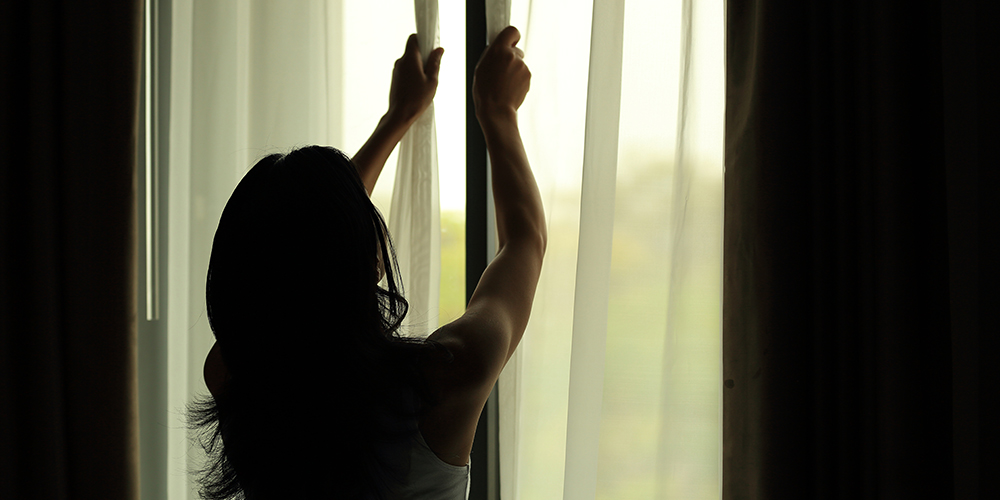
It is best to obscure the inside of your residence at night. Once the sun is no longer out you will have to use your interior lights. At this point, your lights will make it very difficult to see the outside from the inside, while also making it very easy for anyone outside to look in. Whatever your routine becomes, make sure it is maintained. Criminals often observe neighborhoods and homes, looking for changes in the routine that they can recognize as signs of absence. So if you are spending the night somewhere other than your home, you will need to have the windows in a way that is consistent with you being home. This might mean that your blinds remain closed all day if you are not planning to return home. Most people find it much easier to keep blinds closed frequently, and only open them on occasions. It sacrifices appearance for convenient security. Also consider not getting in the habit of shutting curtains when you are leaving, and having them open when you are home. This will tell any thief that is watching that closed blinds mean you are away.
Not everyone can have the AC blasting late into the night, and an open window can really do the trick. With that being said, you do not need every window open. An open window is an open invitation to a thief. Most criminals are lazy. They want quick access, with the least effort expended. An open window might be just enough to make a criminal choose to rob your house over another. Windows that must be left open for ventilation should have precautions to raise alarm. Open windows should be either near the place where you are sleeping or as far from it as possible. This decision should be based upon your comfortability with physical confrontation. The price of doing the most to avoid a violent altercation is the investment in an air conditioning unit. Similar to Tip 5, it is good practice to make sure that your routine cannot be used to gather that you are not home.
If you are moving into a new place make sure that you reach out to a locksmith so new locks can be installed. At the very least, rekey all existing locks, and change out any padlocks already in use. If you have a super or landlord that has a master key, ask about their plans for key control. This step is about making sure that there are not unknown individuals with the keys to your home. If the locks were not changed after the last tenant left, it is very necessary to change them. Regardless of whether the previous tenant had returned their keys, you should update your locks. Even with a do not duplicate stamp on the key, some big box stores will make a copy. Rekeying is the minimum level of security. Changing the locks entirely, and making sure the new locks are a different brand is better. If you stay with the older brand, those that once had access to the lock could very easily modify their copy into a bump key.
If you own your home or your renter’s agreement allows you to upgrade your locks, do it. The basic rule is that any door lock under $75 is not going to provide you much security. In order to save some money, you can opt to not change all the hardware. The most important part of the door lock is the core. If you can replace the core of your existing lock with a higher security lock core, your protection will benefit greatly. Most criminals do not pick locks, but there is a very low skill requirement to open most of the hardware that you can pick up from a big box store (stores like OSH, Home Depot, Lowe’s, etc.). For a few extra dollars, and some installation time, upgrading your locks can be one of the simplest precautions and ways of upgrading your home security.
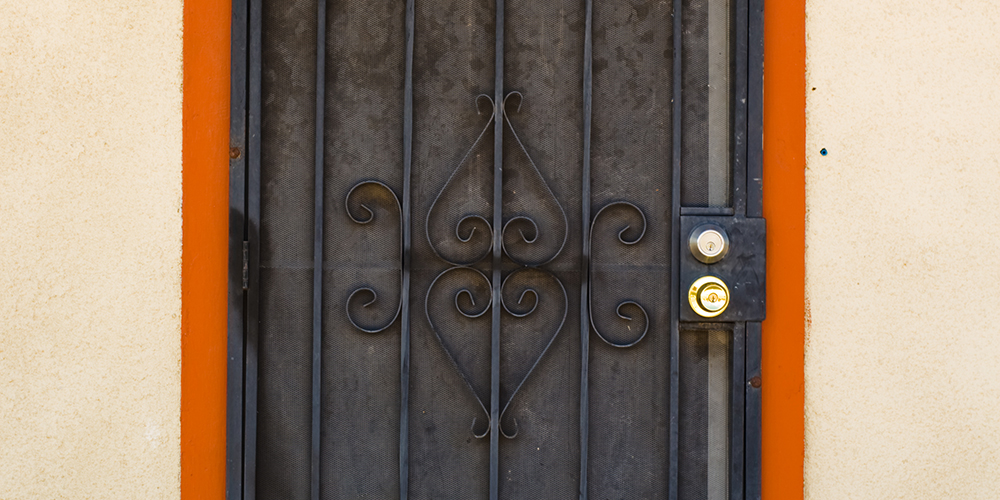
Buying a security door is an additional level of protection to your home. Think of it as a door, for your door. These products are usually made of a metal screen, which will obscure the resident of the home while still making it possible to see the person outside. Security doors vary in protection. Some are quite vulnerable to kicking attacks, due to a lack of weld or metal strength. Any brute force attack on a metal security door will also be very loud. Criminals do not want to make noise. There will also be another locked door behind that door. Multiple doors are going to take quite a bit of time to get past (assuming the other door has the precautions described in tip 14). Obvious security like this is very likely to deter a criminal before any attempt is made to enter the property. These doors may not look attractive to the eye, and/or clash with the style of the home, but if installing one does not violate your tenant policy, I would highly recommend it.
If a key goes missing, it is best to call a locksmith change your locks immediately. This is similar to the idea with key control. It is a precaution based on an exposure to risk. I would say that the level of action you should take depends on where you can last remember having your keys. If the last place you remember having your keys, is your home, your risk is less than say, in your car. The most alarming place to lose your keys would be in a public place. The greater the risk that your keys will be found by a stranger, the greater precautions you should take with your locks. Changing the locks is better than simply rekeying the existing lock, but if you just believe the key may be misplaced, rekeying is a fine precaution. You should still rekey your lock even if you think you may find the key because someone that is not you may find it before you.

In some cases, you might be living so close to your neighbors that you are essentially roommates. It is best to know who these people are. Of course, we would all love for our neighbors to be cool people that we could hang out with and trust with a spare key (leaving duplicate keys with your neighbors can come in handy during a house or car lockout), but it rarely plays out that way. Even if you cannot befriend them, or simply don’t wish to try, it is good to know about them. Be as friendly as you can, within the realm of your own comfortability.
Knowing what the people that live close to you are up to can help to quell the fears you might have, or confirm them. In this case, as well as many others, knowledge is power. If your property is broken into it helps if you can give the police some knowledge of the area, which could mean directing them to a neighbor or keeping them from wasting time investigating them. Knowing your neighbors will also make you more aware of strangers on, or around the premises.
Spare keys are ideal for preventing home lockouts, but they do raise certain security concerns. The more keys out in the world that can open your lock, the greater your risk is for having your safety compromised. Being smart with your spare keys comes down to choosing where to place them. It is not a great idea to just leave keys out in the open. Obvious, and, therefore, bad, hiding places include under mats and in fake rocks. There are creative ways to place keys.
They can be behind a fence in the backyard, out of public view (still not in a fake rock or under a mat). It is best to change the location you keep the key after using it, so anyone that may have seen you access the key cannot find it. Just be aware that leaving a key unattended will increase the risk of a home break-in. If you are giving a spare key to a person, make sure that they can be trusted not only with entry to your home but also to be smart with the key. If they lose it, your protection is compromised and you do not have a key for emergencies.
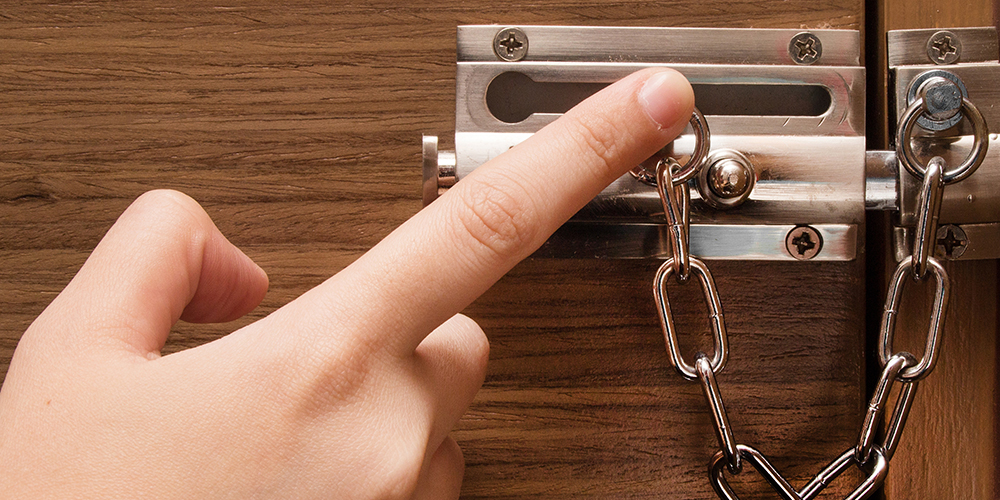
It is fine to leave the doors in your house unlocked, as long as you are prepared for what is going to come through the threshold. Taking a shower, will create enough noise to cover the sound of an intrusion as well as preoccupy you. Similarly, having your headphones in around the house will limit your awareness. Always consider what you are doing and whether it will leave you unprepared for an emergency. Anytime you cannot be fully aware of what is happening in and around the home, lock all the doors. Treat any type of unawareness as sleep. Because criminals are risk takers, with varying degrees of desperation, it might seem worth it to attack the home while you are preoccupied. Defenses will not need to be all the way engaged. You will only need to activate protections that will get your attention, and lock entrances that you cannot assess.
In conjunction with a security door, or in lieu of one, the existing door can be strengthened. Many people make the mistake of neglecting their doors, when in fact doors are a cornerstone of security. Some doors are more sturdy than others, and upgrading to one of those products will offer greater protection. Your level of security, on each door, depends on what is at the core of the door. The core may be steel (which will vary in what gauge it is), fiberglass, wood, etc. However, if you are unable to change your door entirely, there are ways to make the current door stronger.
Focus on the three weak points of a door: The hinge side, the hardware side of the door jamb, and the hardware itself. It may seem like that is most of the door, but there are products that address all three of these weaknesses. Besides purchasing an door upgrade kit, you could also fashion similar products yourself (depending on your fabrication skills). Once all of the weak points on the door have been secured, then the composite of the door will begin to matter. When both sides of the jamb and the hardware are all sturdy, the door itself will become the first thing to fail.
When securing your home, it just makes sense to improve the strength of what most people generally consider to be the weakest aspect of home security. If your doors are strong, your locks are high security, and your windows are locked, then there is still the fragile glass. Products such as security film will strengthen the glass of the window. That is a huge plus, as breaking glass is often the easiest method of entry. Security film is not perfect of course. All it will do is increase the effort and time it will take to breach your security. Once this inherent weakness is fixed, your home will leave most burglars baffled. Security film can also be resistant to scratches and graffiti, which will keep the home from seeming neglected/abandoned. The key word is resistance. All of these protections will fail under an excess of stress, but it will buy you time to react.
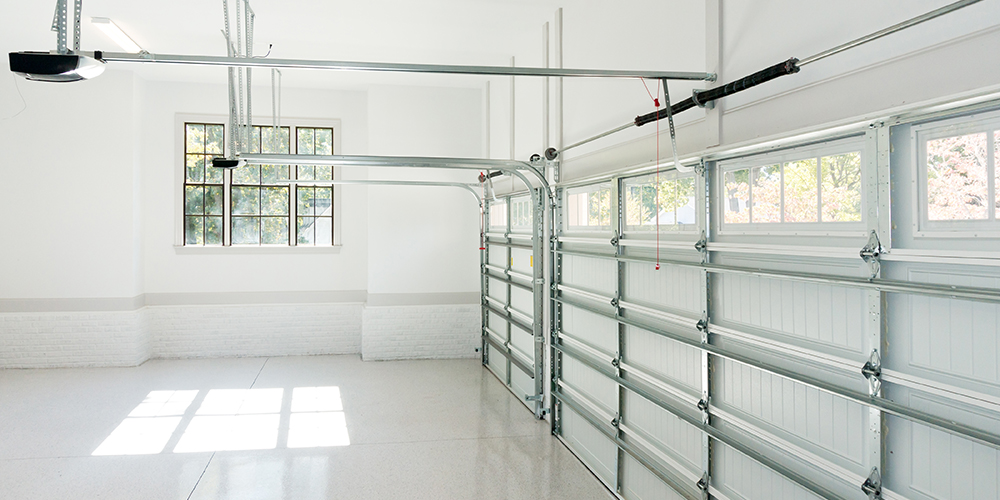
If your home has an electric garage door then this is a major vulnerability. If you look on the inside of your garage, there should be a track spanning from the garage door to the motor. On this track, there is a moving metal piece that slides along the track and connects to the door. This part of the garage door is known as the trolley. On the trolley, there should be a rope (often red). Pulling this rope will disengage the door from the automation of the motor, and allow for the garage door to rise and fall manually. Due to this design, almost any person can open your garage from the outside with a basic wire coat hanger.
There are several easy do it yourself remedies for this. The easiest solution is to use a zip tie and loop it around the release latch so that it cannot separate enough to disengage the door. With a hard enough tug, the zip tie will break, so you still have access for emergencies. Another thing you could do is fasten a plank, or piece of metal to obscure the opening on the garage door that the coat hanger would fit through. To do this screw or nail the a plank so that it is angled. Make sure you are fastening the plank into the garage door in a way that will not have it grind on the wall. This also allows you to keep the rope accessible for emergencies.
Trusting your instincts is not the same as being ruled by them. If you are concerned that a large sound is a person trying to break in, get up and investigate it. Turn lights on. Take a look around the perimeter of your property. If you are very concerned, take shelter and call the Police. In an extreme situation, try to get out of the house and seek refuge with a neighbor. Do not be scared, take action. You are living alone, so there is no need to worry about waking anyone up (unless you are loud enough to wake the neighbors).
This also goes for more trivial concerns. If you notice that your door sticks making it not easy to lock, take action on that thought. When there is a part of your security that demands a special amount of attention in order to use it properly, mistakes will be made. Things that might seem even less important are things like sliding in the shower, but they are not. If your shower gets very slippery, get some traction pads. If a step is loose, and you almost trip, fix the step. You need to act as soon as your instinct tells you there is a problem. Not being ruled by that instinct allows you to make the informed decision on how to remedy a problem.
When lights are not on, it makes it very difficult to see. It would also be impractical to always have outside lights on, just on the off chance that a burglar will show up. The compromise is a motion sensor light. Personally, I will also keep the porch light on, the entire night. This just provides light to the area of the house most likely to be targeted. Flashlights also come in handy. If the lights are out in an emergency, it is not always safe to move around your house without any light. The same natural disaster that knocked out the power could have also caused glass to break, or made other obstacles you are not anticipating. A flashlight will also allow you to carry the light outside the home. If you are forced to leave your home you may not have time to put on shoes, and knowing where you are stepping will come in handy. Placing a piece of red glass or plastic on your flashlight might come in handy. The red light will not cause the temporary blindness of the direct bulb, but it will still provide you with illumination. The red light does not give away your position if you are attempting to hide in the home, and when all else fails, just turn on all the lights. You live alone, and don’t have to worry about waking anyone up.
Alarm services vary quite greatly in the protections they offer. The best type of alarm will use a cell signal to message out to the police, yourself, and the security company. That is informing three different parties about the break-in. The variety of informed parties greatly increases the likelihood of a quick response. It is also important to use a cellular based dial-out system because phone lines can usually be disabled from outside of the home. Beyond the service, you can install secondary alarms in your house that are just meant to create noise. For these alarms, the operative words are loud and hidden. You want your neighbors calling the authorities, and you want the criminal to be unable to find and disable the sound. In lieu of this, you can always invest in a monitored security system so that there is an extra set of eyes looking out for you.

Criminals do not want to be seen. We talked in Tip 18 about how light is a great deterrent, but if there is a place to hide, illumination will not matter. The simple rule to follow is to keep your shrubs/bushes low and keep your tree branches high. How high? This depends on the height of your windows. Make sure that your bushes are below the bottom of the windows, and trees are trimmed above the top of the windows. This will give you a clear line of site from each of your vantage points. Bushes and shrubs should also not have enough space to walk behind. If a person can walk behind the foliage, then this will prevent passers-by from raising an alarm. If your neighbor is not trimming their landscape, this may also be a problem. A bush that rests on someone else’s property is outside of your right to maintain, but it is not outside of a criminal’s ability to use. If you were successful with Tip 11, there is a chance that the people that live around you can be convinced of the benefits practical landscaping offers. Always remember to be courteous and calm when asking for favors. Offering to do the work yourself may be seen as a win-win for both people, but others might take offense. Do your best to read the situation.
It is not just a great movie from before Kristen Stewart forgot how to act. Panic rooms provide an area inside the home, in case egress is blocked. This type of room does not need to be some high-tech fortress. At a low cost, you can make an existing room in your house panic ready, without making it exclusively a panic room. Simply invest in a solid core door, and secure it as described in Tip 14. Install a deadbolt, and keep a cellphone and a charger in the room. Now you have bought yourself some time, and created a way to notify the authorities if the phone lines go down. Because you will be using a cell phone, the most important thing is that your improvised panic room will have reception. (This might not seem like a big deal to everyone, but in my own home, there are very few places I receive a signal.) The phone you keep in that room can also be an older model that you no longer use, that way you will not being taking the phone in and out of the room. And don’t worry about the expense of having another phone on your plan, any fully charged cell phone can call 911 even without company coverage.
Besides a dog, an actual alarm, or using a phone to call for help, there are more ways to request assistance. Gravel around the property will make the burglar’s approach less stealthy. Whistles can be physical if you are unable to whistle or unable to whistle very loudly. Military whistles will be your best option because they produce the highest decibel count. When you are whistling, it is best to be by a window or outside to keep the sound from being insulated. Make sure that you give three short loud bursts, stop, and begin again (relatively universal distress signal). Your voice will not last as long, and will not carry as far, but if you have no other option, shouting can be used. Be sure that when you are screaming that you yell “fire” and not “help”.
There are some articles that will tell you that is not effective, but they fail to see the social taboo of yelling fire. Perhaps it is not true that bystanders are more likely to assist in a fire than they are in a physical altercation, but that is not why a person in the USA is going to perk up. Kids are always screaming. People yell for help jokingly, but yelling “fire” is a serious offense. It is illegal to yell fire (one of the few acts not covered by freedom of speech), so that means that it is an emergency. “Help” is just too overused, and runs the risk of “the boy who cried wolf” situation.
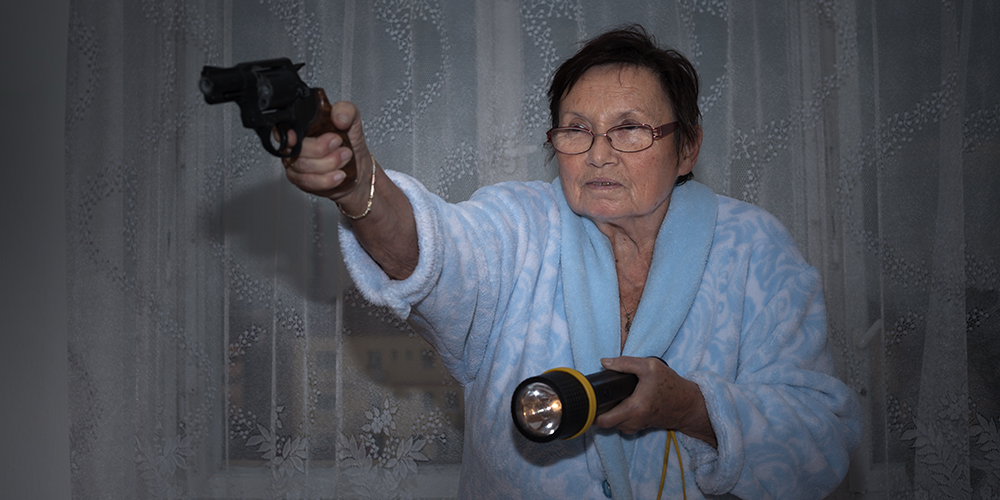
This is a very serious matter. Weapons are meant to be used strictly in self-defense. Neither myself or the Lock Blog recommends that you try to confront anyone who is entering your home illegally. With that said, there are many weapons you can use to defend yourself. The most important thing is that you know how they work and are not scared of them. Guns are often the go-to weapon for protection, but guns might not be for you. They require maintenance, proper storage, they are loud, heavy, and extremely deadly. Not to mention the mussel flair can be blinding in a dark room, which is likely to make any shot after the first very inaccurate. I have a martial arts background, so I have a pair of sai next to my bed that I have trained with extensively. I feel very comfortable with those for a close quarters confrontations. For longer distance I have a small crossbow. It has one shot (most likely), but after that shot, I will not be blind. Consider your own needs and skills before taking a weapon. I would also recommend martial arts training for when getting to a weapon is not an option.
What security always comes down to is decreasing risk and vulnerability, while increasing the risk for any would-be criminals. It comes down to being aware of your surroundings, and being mindful of the reality of your situation. Talking about security can very often feel like scare tactics, and that is why I began the piece with some reassuring statistics. If you are concerned with any of these threats, you should know what to do. However, you should not feel more at risk as a result of this article. Security can always be better, and it is human nature to postpone the things in life that do not matter at the moment a decision needs to be made. Be smart with your protections. Be proactive with your planning and strategy. And be practical with your assessment. Beyond the threat of violence and theft, consider the mundane concerns of single living. Whatever your fears may be, do not let them cripple you. This article is intended for education and should not be used for illegal activity. Be safe, and live well.
Category: How To's, Residential, Safety & Security